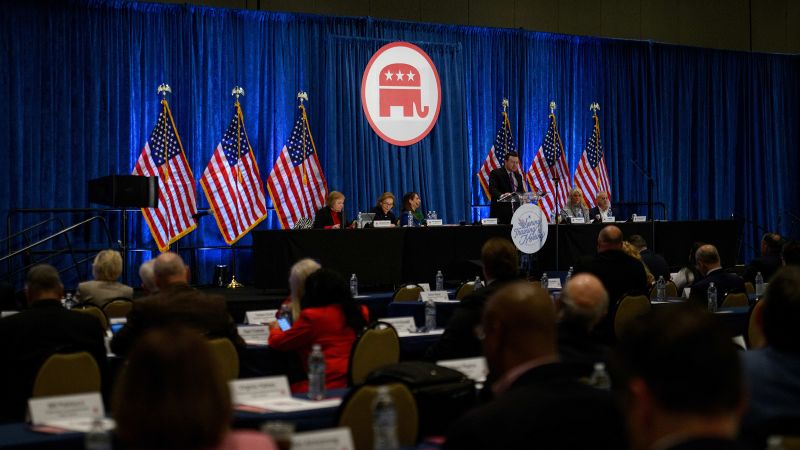Top officials at the Republican National Committee have denied reports suggesting the existence of a “litmus test” for current and potential staffers regarding their beliefs about the 2020 election being stolen. This denial follows a report from CNN stating that current RNC employees and job applicants were questioned about their views on fraud during the 2020 election. The focus on election fraud has intensified under the new leadership at the RNC, particularly due to former President Donald Trump’s dissatisfaction with how the RNC handled claims of election fraud in the previous election, despite there being no evidence of widespread fraud.
The RNC official refuted claims of a litmus test related to the 2020 election and stated that the questioning was aimed at understanding the perspectives of political staff in battleground states. The official explained that the purpose was to ascertain if individuals had reflected on available information over the last four years and formed their own opinions on what transpired during the election. Another official denied querying specifically about whether the 2020 election was rigged, emphasizing that the primary criterion was whether individuals supported President Trump or not.
Trump’s ongoing claims of election fraud and assertions that President Joe Biden stole the election have been a unifying factor for many GOP voters. His strained relationship with former RNC chairwoman Ronna McDaniel was largely due to his dissatisfaction with her handling of alleged claims of fraud. Following McDaniel and RNC co-chair Drew McKissick stepping down from their positions, Trump endorsed Michael Whatley and Lara Trump, his daughter-in-law, as their successors. Additionally, Trump appointed two of his senior advisers, Chris LaCivita and James Blair, to senior roles at the RNC to help drive its political strategy, while also continuing as advisers to Trump’s 2024 campaign.
Despite the denial of a litmus test regarding beliefs about the 2020 election, the issue of election fraud remains a contentious and divisive topic within the GOP. Trump’s persistent claims of fraud have continued to influence the party’s direction and leadership decisions. The intensifying focus on fraud within the RNC reflects the ongoing influence of Trump and his insistence on overturning the results of the 2020 election. The appointments of Trump-endorsed candidates and senior advisers to key positions at the RNC indicate Trump’s continued involvement in shaping the party’s strategy and leadership.
The RNC’s handling of claims of election fraud and its stance on the 2020 election have become a defining issue for the party, with implications for its future direction. The influence of Trump’s beliefs and continued rhetoric on election fraud is evident in the developments within the RNC leadership and the criteria for staff members. The division within the party over the issue of election fraud underscores the challenges facing the GOP as it navigates the aftermath of the 2020 election and looks ahead to the 2024 election. The denial of a litmus test by RNC officials may not fully address the underlying concerns and implications of the party’s stance on election fraud.















